Search Definitions
Browse Content (p. 272)
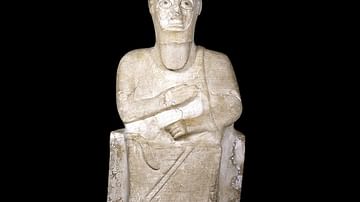
Definition
Amorite
The Amorites were a Semitic people who seem to have emerged from western Mesopotamia (modern-day Syria) at some point prior to the 3rd millennium BCE. In Sumerian they were known as the Martu or the Tidnum (in the Ur III Period), in Akkadian...

Definition
Levant
Levant is the name applied widely to the eastern Mediterranean coastal lands of Asia Minor and Phoenicia (modern-day Turkey, Syria, and Lebanon). In a wider sense, the term can be used to encompass the entire coastline from Greece to Egypt...

Definition
Italy
The Italian Peninsula or Apennine Peninsula is one of the three peninsulas of Southern Europe (the other two being the Iberian Peninsula and Balkan Peninsula), spanning 1,000 km from the Po Valley in the north to the central Mediterranean...
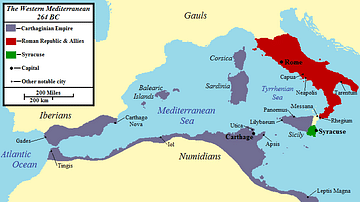
Definition
Syracuse
The city of Syracuse is located on the east coast of Sicily and was originally a Greek colony founded by Corinth in 734 BCE. The city enjoyed a period of expansion and prosperity under the tyrant Gelon in the 5th century BCE, survived a two-year...
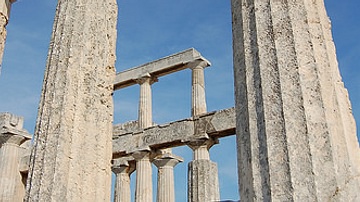
Definition
Aegina
Aegina is an island in the Saronic Gulf, south of Athens. It was one of Greece's early maritime powers, famous for minting the earliest coins in Greece which were accepted all over the Mediterranean region. According to the classical writer...
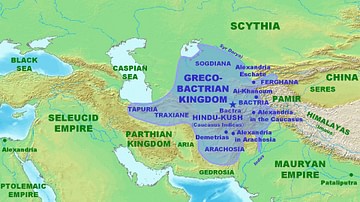
Definition
Bactria
Bactria was a province of the Persian empire located in modern Afghanistan, Uzbekistan, and Tajikistan. After the defeat of Darius III of Persia, Bactria continued to offer resistance against Alexander the Great, led by Bessus, who had...

Definition
Gaul
Gaul (Latin Gallia, French Gaule) is the name given by the Romans to the territories where the Celtic Gauls (Latin Galli, French Gaulois) lived, including present France, Belgium, Luxemburg and parts of the Netherlands, Switzerland, Germany...
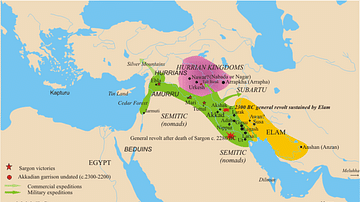
Definition
Akkad and the Akkadian Empire
Akkad was the seat of the Akkadian Empire (2334-2218 BCE), the first multi-national political entity in the world, founded by Sargon the Great (r. 2334-2279 BCE) who unified Mesopotamia under his rule and set the model for later Mesopotamian...
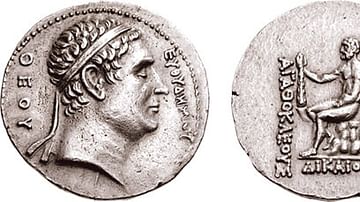
Definition
Coinage
Coins were introduced as a method of payment around the 6th or 5th century BCE. The invention of coins is still shrouded in mystery: According to Herodotus (I, 94), coins were first minted by the Lydians, while Aristotle claims that the first...
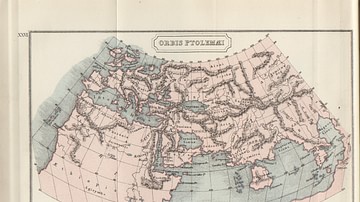
Definition
Arabia
The ancient Arabians, or Arabes as they were called by the Hellenes, were a Semitic people. One must note that the Arabians were not a single people but multiple smaller kingdoms and tribes. Arabia was home to great city builders and nomads...